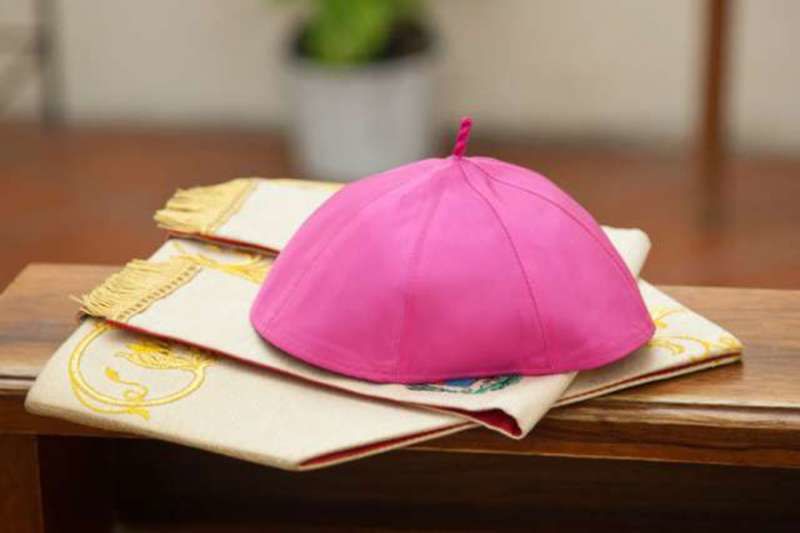On Monday, Pope Francis accepted the resignation of Bishop John McAreavey of Dromore, Ireland, who had asked to step down earlier this month following media claims that he mishandled an abuse report in the early ‘90s.
Pope Francis accepted McAreavey’s request to resign as bishop March 26 and appointed an apostolic administrator, retired Bishop Philip Boyce of Raphoe, 78, until the appointment of a successor.
In a letter announcing his resignation March 3, McAreavey wrote that “with a heavy heart” he would be resigning “following recent media coverage which has disturbed and upset many people.”
“I wrestled with this decision over recent weeks; it was not an easy decision to take,” he said, also asking for prayers for anyone who has been abused.
McAreavey, 69, announced his intention to step down at the beginning of March, after media and individuals called for his resignation following the airing of a program in February on allegations of child sexual abuse against a now-deceased priest of the Diocese of Dromore.
Twelve allegations of abuse have been made against Fr. Malachy Finnegan, who died in January 2002. All but two of the allegations emerged after his death.
According to the February program “Spotlight” by BBC Northern Ireland, McAreavey was asked to investigate an allegation of abuse involving Finnegan by then-Bishop of Dromore Francis Brooks in 1994. Critics said that McAreavey failed to act on the allegations that had been brought to his attention.
McAreavey, who did not become bishop until 1999, has said that he believed Bishop Brooks had reported the allegation to the authorities.
Finnegan was never prosecuted for abuse, but the allegations were investigated by the Church in Ireland’s National Board for Safeguarding Children starting in 2011, at Bishop McAreavey’s request.
McAreavey was also criticized for celebrating the funeral Mass of Finnegan in 2002. He made an apology Feb. 7, 2018, stating that through the testimony of victims, he had come to see that the decision to celebrate the funeral in early 2002 “was the wrong one.”
“In November 2002 a victim told me how hurt he was by this, I realized that I had made an error of judgement. It is something I regret and will not repeat,” he noted.
He also said that as a bishop he is aware of the need for many victims to receive “acknowledgment, an apology, counseling and indeed compensation,” and that he would be doing his best to meet these needs with the help of the diocesan director of safeguarding.
The allegations against Finnegan are from the time he was on the staff of St. Colman’s College from 1967 to 1987, and later when he was a parish priest in Clonduff/Hilltown.
In his February statement Bishop McAreavey described Finnegan’s actions as “abhorrent, inexcusable and indefensible.”
“We speak about abuse cases as being historical, but we must never lose sight of the reality that the legacy of abuse lives on for victims and for them it is all too present. I ask you to pray for them and their families,” he added, also encouraging anyone who thinks they may have been abused in a church context to come forward in order to receive support.
Upon the announcement of McAreavey’s resignation March 26, Archbishop Eamon Martin, head of the Irish bishops’ conference, issued a statement acknowledging his 19 years of service as a bishop and his “generous contribution” to the local bishops’ conference, both as a member and as president.
“As the bishops stated following their Spring 2018 general meeting earlier this month, the Church can never become complacent concerning the safeguarding of children,” he said, noting that the Church is committed to the review process of dioceses and to cooperation with any inquiries by authorities.
Martin also stated that his prayers are with “the people, religious and clergy of Dromore and in particular with all who are suffering because of abuse.”
McAreavey was born in Drumnagally, Banbridge in 1949. He was ordained a priest for the Diocese of Dromore in June 1973 and received a doctorate in canon law from the Pontifical Gregorian University in Rome in 1978.
While a priest he taught at St. Coleman's College and St. Patrick's College. He also served on the Armagh Regional Marriage Tribunal and has written extensively on Church law.
Pope St. John Paul II appointed him Bishop of Dromore in June 1999.

